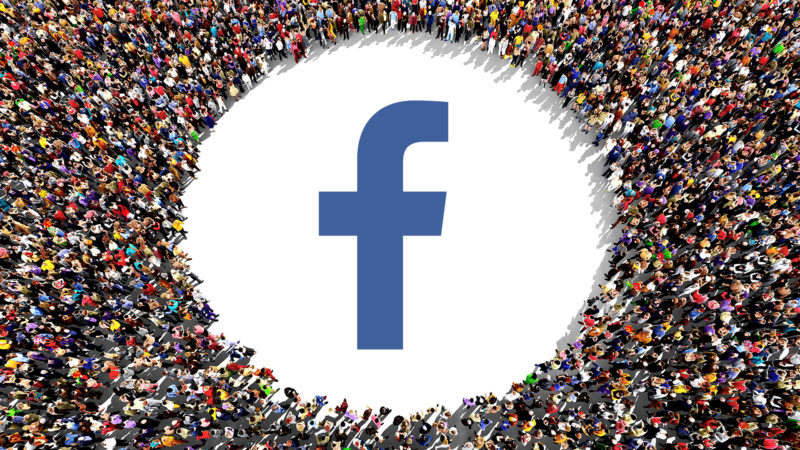Advertisers didn’t leave YouTube, and they won’t leave Facebook
Is Facebook in serious trouble with advertisers over data practices revealed in the Cambridge Analytica scandal? Contributor Nate Elliott expects the controversy to eventually blow over.

Advertisers are threatening to leave Facebook because of the Cambridge Analytica scandal. But nothing makes advertisers stop buying successful ads. As long as Facebook delivers results, advertisers aren’t going anywhere.
Revelations that Cambridge Analytica exploited Facebook’s data policies made this a bad week for the social giant:
- Investors punished its stock. Facebook’s share price fell 14 percent in a week.
- Regulators demanded answers. The FTC started investigating Facebook’s privacy practices. European regulators also announced inquiries.
- Advertisers threatened to leave. Brands like Commerzbank and Mozilla suspended their Facebook campaigns. The ISBA — which represents 3,000 brands, including P&G and Unilever — warned Facebook that it was deeply concerned and said: “This issue is a key priority for us and we are committed to keeping up the pressure on Facebook to deliver clarity and action.”
I can’t predict what investors or regulators will do next. But advertisers aren’t going to leave Facebook over this. Brands think Facebook ads work, and so they’ll gloss over the scandal and keep spending.
Consider the curious case of YouTube. In March 2017, Google admitted it accepted hate preachers, neo-Nazis and other extremists into its YouTube Partner Program. Not only did brands’ ads appear next to extremist content, but YouTube’s revenue-sharing scheme meant brands were funding hate groups like ISIS.
What happened next looks familiar:
- Investors punished Google’s stock. Google’s share price fell nearly 5 percent the week the scandal broke, even though YouTube contributes only about 10 percent of the company’s revenue.
- Regulators demanded answers. The UK government grilled YouTube executives in the House of Commons and summoned Google to explain how it would fix the problem.
- Advertisers threatened to leave. More than 250 brands — including McDonald’s, L’Oreal and Audi — suspended their Google and YouTube campaigns. GroupM reportedly predicted the scandal would cost Google hundreds of millions in lost revenue.
But despite the backlash, YouTube recovered quickly. Google admitted, “[W]e can do a better job.” The company assigned engineers to build better filters and sent executives to visit brands and regulators. Four days after the scandal broke, Google announced “expanded safeguards for advertisers.” Within weeks, brands were spending again. Google reported better-than-expected earnings that quarter and credited “ongoing strength in YouTube.”
Brands didn’t want to stop buying YouTube ads. Google’s quick fixes gave advertisers the political cover they needed to keep spending.
Brands don’t want to stop buying Facebook ads, either. Fortunately for them, Mark Zuckerberg’s belated response to the Cambridge Analytica news hits the same notes YouTube did a year ago. “We made mistakes,” he said. “There’s more to do.”
And, just like they did with YouTube, brands are already using the political cover Zuckerberg’s statement provides. The ISBA backtracked on its tough talk, announcing a “constructive” meeting and saying, “[W]e welcome the steps they have announced.” Brands like Carlsberg say they’re sticking with Facebook. This scandal might not cost Facebook a penny.
The fact is, only two things would convince brands to leave Facebook:
- A user exodus. It’s easy for advertisers to leave controversial sites like Breitbart, which has fewer than 10 million monthly users. But it’s harder for brands to ignore YouTube’s 1.5 billion users or Facebook’s 2.1 billion users. If users walk away from Facebook, however, brands will, too. One problem: This week’s #DeleteFacebook chatter isn’t the first time we’ve heard users were leaving the site. For years, commentators have told us that young people or those concerned about privacy were deleting their accounts. Despite the dire warnings, Facebook continues to grow.
- Performance-crippling regulation. Facebook ads didn’t always work well. Five years ago, marketers said they were less satisfied with Facebook ads than with any other digital marketing opportunity. Facebook fixed that problem by giving brands unlimited ad targeting options. But new government regulations could limit Facebook’s use of data, and that would impact ad performance. If the ads don’t work, brands will look elsewhere.
But absent a user exodus or performance-crippling regulation, advertisers aren’t going to leave Facebook. Just ask YouTube.
Contributing authors are invited to create content for MarTech and are chosen for their expertise and contribution to the search community. Our contributors work under the oversight of the editorial staff and contributions are checked for quality and relevance to our readers. MarTech is owned by Semrush. Contributor was not asked to make any direct or indirect mentions of Semrush. The opinions they express are their own.
Related stories